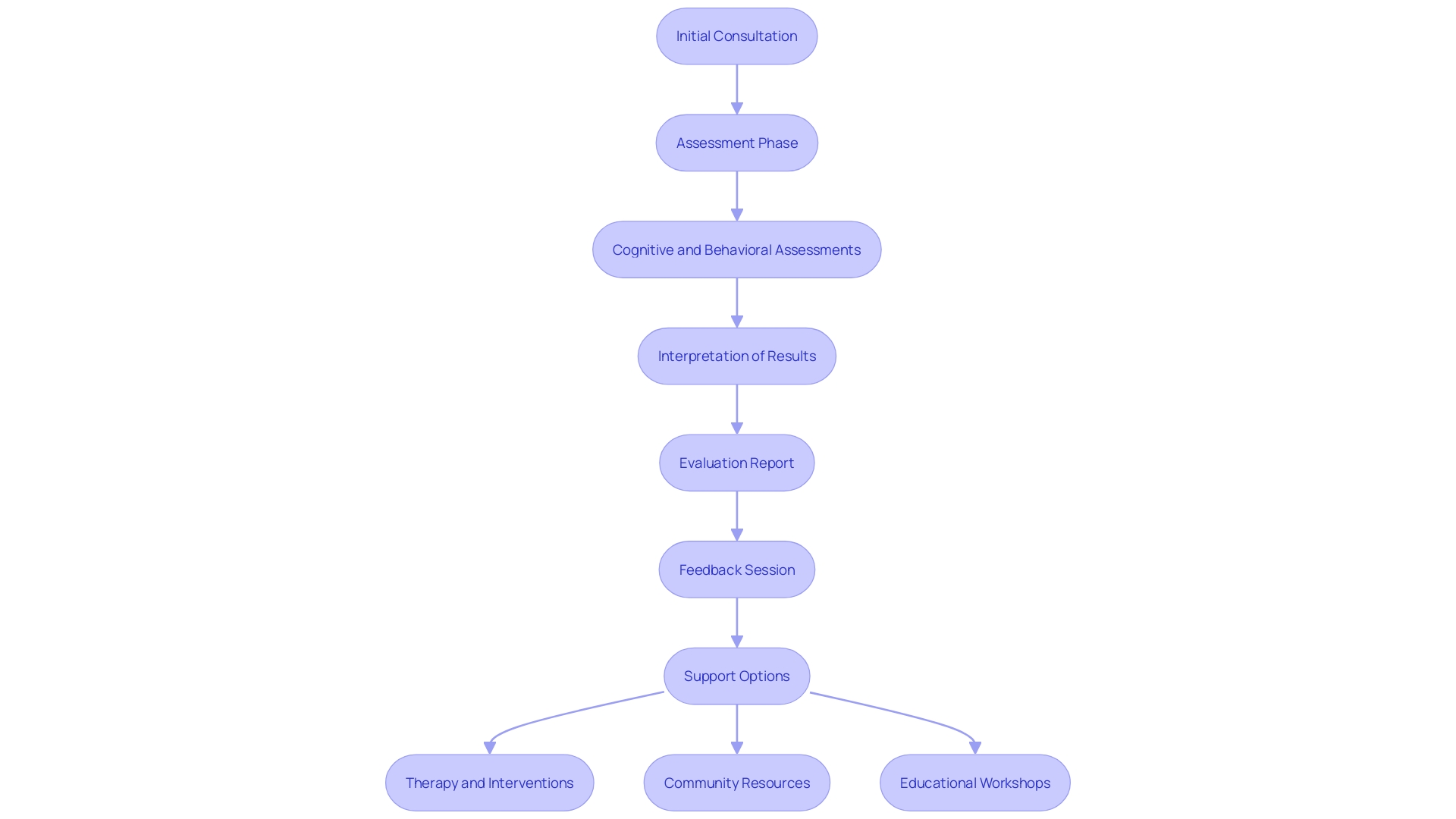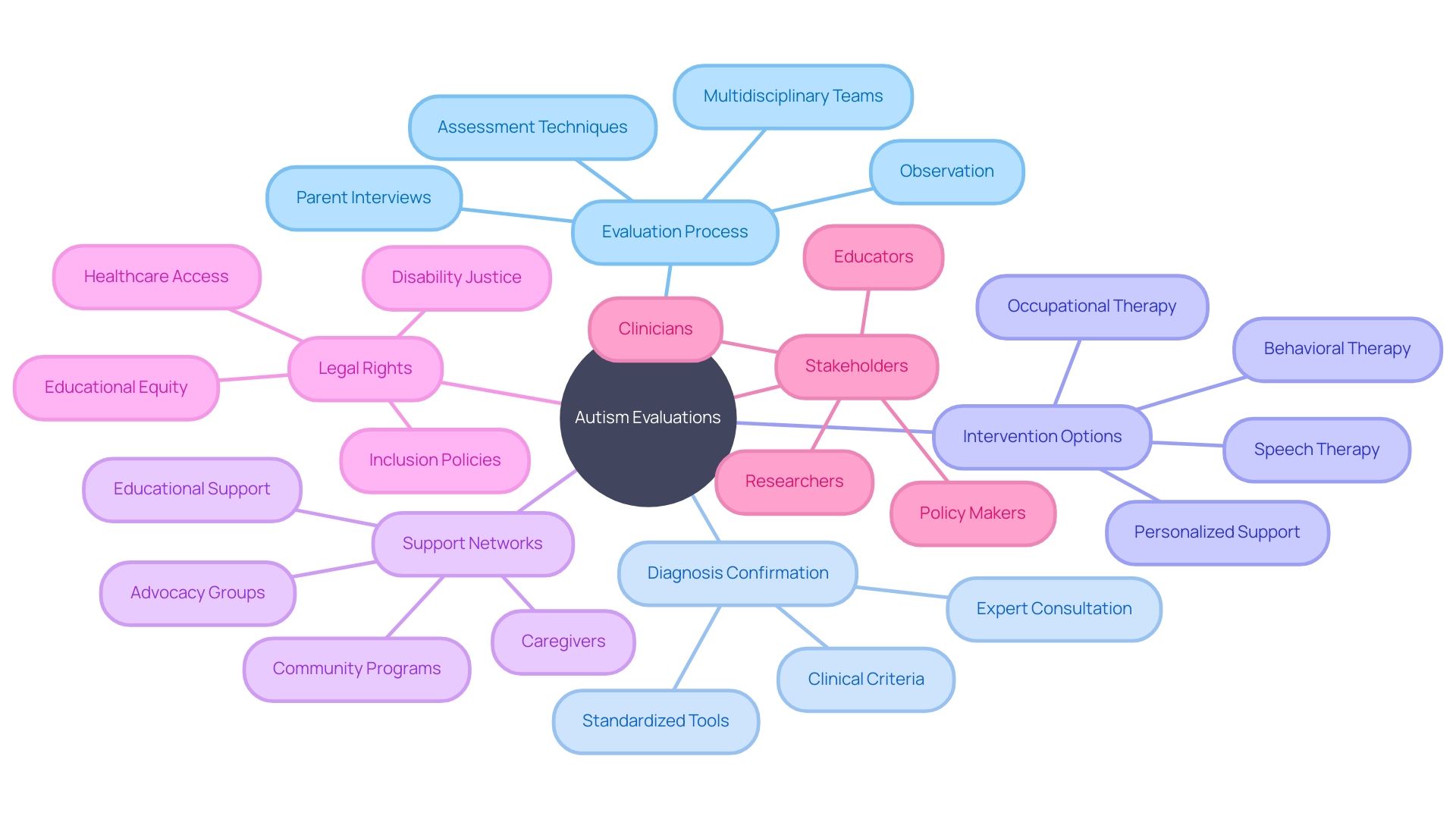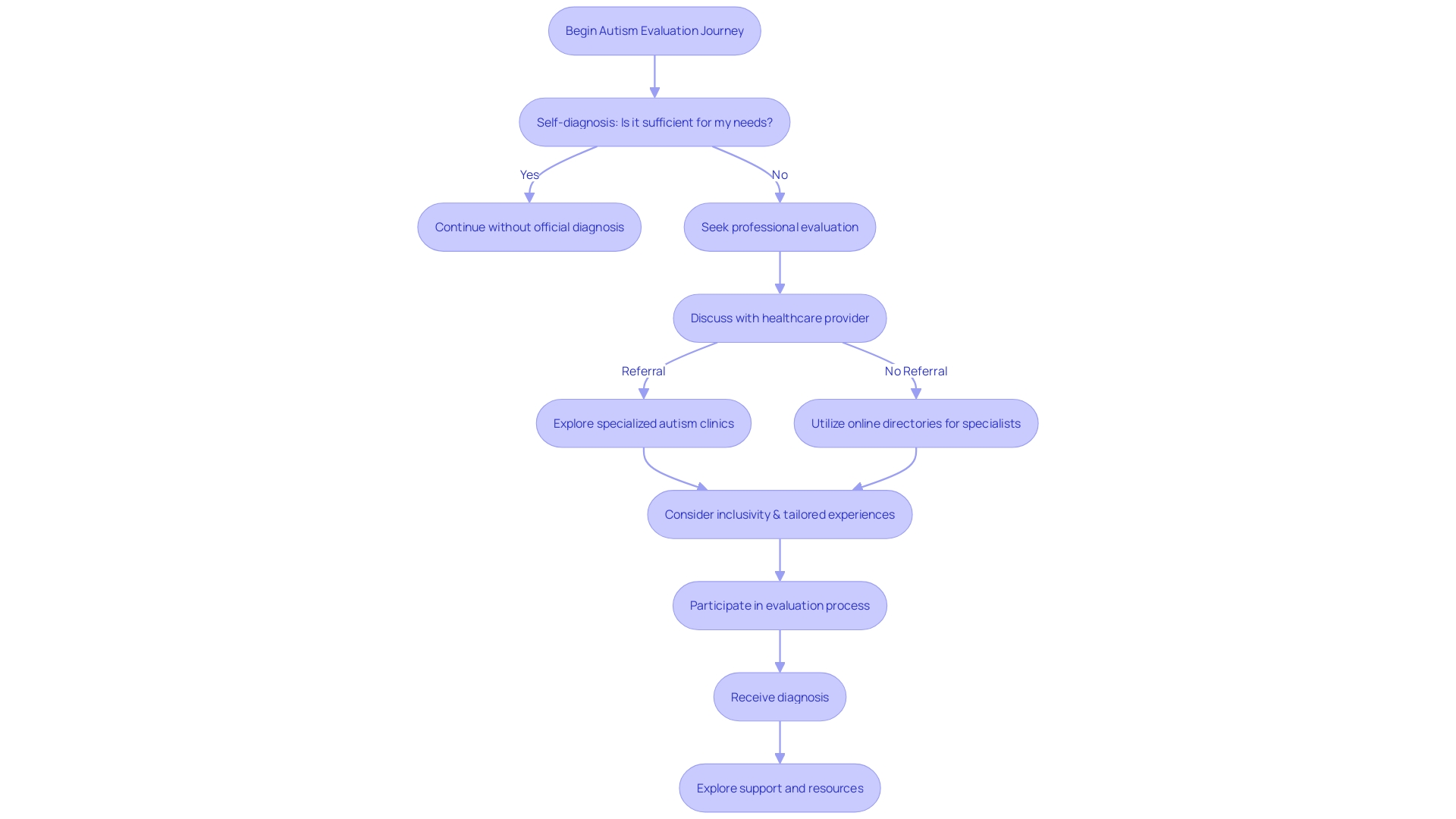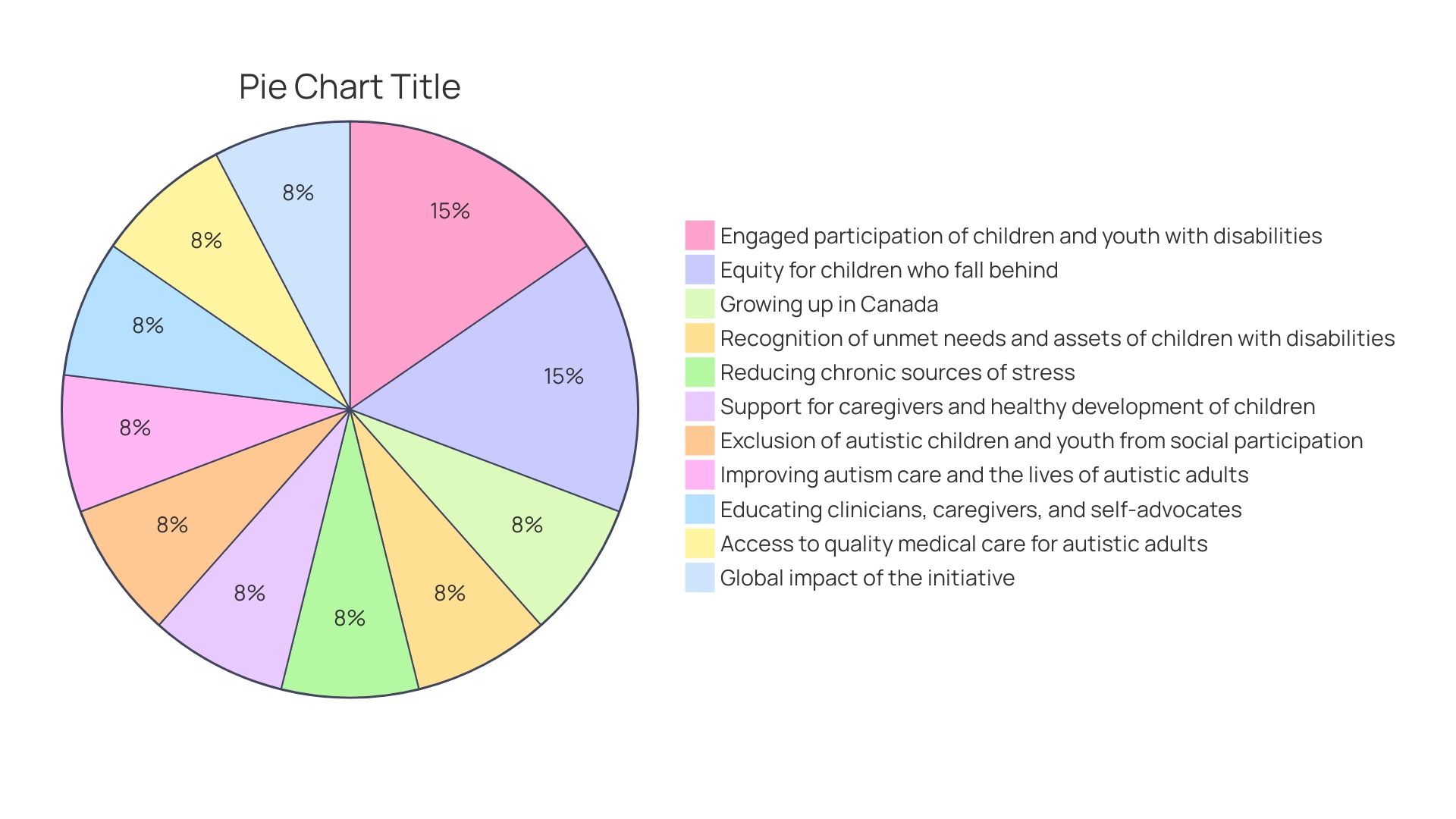Introduction
Adults with autism face unique challenges in their daily lives, often different from those experienced by children with the same condition. Navigating a complex web of social, communicative, and behavioral difficulties, autistic adults may have developed coping strategies or learned to conceal their struggles, making it challenging to recognize their true needs. Despite increased awareness of autism spectrum disorder (ASD), many adults remain undiagnosed or misdiagnosed due to various reasons, including unclear testing outcomes.
This article explores the importance of seeking autism testing as an adult, the preparation involved, the types of evaluations available, and the interpretation of test results. It also highlights the significance of accessible healthcare services and resources for autistic adults, emphasizing the need for understanding and support. By empowering adults with autism through self-awareness and tailored interventions, we can enhance their well-being and help them lead fulfilling lives.
Understanding Autism in Adults
Adults with autism often navigate a complex web of social, communicative, and behavioral challenges that can differ significantly from those experienced by children with the same condition. Autistic adults may have honed a range of coping strategies or learned to conceal their difficulties, which can obscure the true nature of their daily struggles. Despite the increased awareness and understanding of autism spectrum disorder (ASD) in recent years, many adults may remain undiagnosed or misdiagnosed due to a variety of reasons, including a lack of clear testing outcomes.
Indeed, 1 in 45 adults in the U.S. have been diagnosed with ASD, highlighting the prevalence of this condition in the adult population.
Self-diagnosis is a widely accepted concept within the autistic and neurodivergent community, particularly given the limitations and sometimes inconclusive results of medical testing. For some individuals, an official diagnosis may not be pivotal to obtaining the support they need to thrive, thereby allowing them to forgo the exhaustive and potentially costly diagnostic process. However, for others, a formal diagnosis serves to affirm their experiences and provides a framework for understanding and obtaining necessary accommodations, especially in professional environments.
The recognition of neurodiversity within the workforce is growing, as evidenced by initiatives like the National Geospatial-Intelligence Agency's neurodiversity pilot aimed at hiring autistic individuals.
The rise in autism prevalence among adults, particularly those aged 25 to 34, underscores the importance of accessible and informed healthcare services. The Adult Autism Health Resources initiative is one such effort to bridge this gap by educating clinicians and caregivers about the unique medical needs of autistic adults who, unlike their younger counterparts, often lack the same level of support services post-high school. This initiative emphasizes that autistic adults require quality medical care throughout their lifespan, much like neurotypical individuals.
Clinicians are encouraged to expand their knowledge base to better serve autistic adults, who may present with co-occurring mental health conditions such as anxiety and depression. These conditions do not always require specialized treatment different from that of the general population, yet many autistic adults report difficulty in accessing appropriate care. With a commitment to learning and minimal additional training, healthcare providers can effectively include autistic adults in their practice, thereby fostering trust and ensuring that this patient population receives the comprehensive support they deserve.
Why Seek Autism Testing as an Adult
Adults seeking an understanding of their own neurodevelopmental profile may consider autism testing not just for clarity but also for the empowerment that comes with self-awareness. While a formal diagnosis is not imperative to identify with the autistic community—a group that embraces self-diagnosis amid the complexities and frequent inconclusive results of medical testing—it can serve as validation in social and professional contexts, and help one navigate relationships and work environments with greater insight. Moreover, understanding personal strengths and challenges can pave the way to tailored support and interventions, potentially enhancing one's quality of life.
Notably, despite potential barriers like finding qualified professionals for adult assessment, the value of a diagnosis can be profound, as illustrated by CEO Heather Florio's transformative experience at age 41. With more adults recognizing the signs of autism, which mirror those in children, such as difficulties in social communication and repetitive behaviors, the journey towards diagnosis and support is increasingly acknowledged as a step towards better mental well-being and a more fulfilling life.
Preparing for Autism Testing
When an adult decides to pursue autism testing, it's crucial to start with a clear understanding of their developmental history and any previous assessments or diagnoses. This background offers clinicians valuable insights for a comprehensive evaluation. Self-diagnosis is common and accepted within the autistic and neurodivergent community, given the challenges and often inconclusive results of medical testing.
However, for those who opt for an official diagnosis, it's important to articulate current concerns, challenges, and aspirations. Preparing a detailed account can aid the diagnostic process, and enlisting the support of family, friends, or caregivers who can share observations and offer support is immensely beneficial. This approach is not only about obtaining a label; it's about recognizing the existing population of adults on the spectrum and ensuring they get the same quality medical care as their neurotypical counterparts, as emphasized by experts like Dr. Christopher McDougle from Harvard Medical School.
With 1 in 45 adults in the U.S. diagnosed with ASD, many might be undiagnosed or misdiagnosed. Recognizing the signs and symptoms of autism in adults, which mirror those in children, is a crucial step in seeking understanding and support. The process involves a meticulous evaluation of an individual's behavior, thinking patterns, and personal questionnaires, which can be a barrier due to limited access to professionals skilled in adult assessments.
This is a reflection of the broader issue of mental health, which is multifaceted and affected by various socioeconomic factors, impacting not just the individual but their network of support. Ultimately, this process is about acknowledging individuals' unique experiences and supporting them to live productive, purposeful, and meaningful lives.
Types of Autism Evaluations for Adults
Adults seeking an understanding of autism spectrum disorder (ASD) have various assessment options tailored to their unique needs. Diagnostic evaluations are pivotal, as they confirm whether an individual meets the criteria for ASD, providing clarity and direction for appropriate support. Yet, many within the autistic and neurodivergent community embrace self-diagnosis, acknowledging the imperfections in the medical testing model which can often yield inconclusive results.
The decision to pursue a formal diagnosis is deeply personal and hinges on the individual's desire for validation or the need for formalized support systems.
Beyond diagnosis, cognitive assessments delve into intellectual abilities, and adaptive functioning assessments gauge practical daily life skills. Behavioral assessments offer deeper insights into specific autistic traits and challenges. These evaluations can be a lifeline for those who, post-high school, find themselves without the guidance and services so readily available during their earlier years.
Harvard's Adult Autism Health Resources initiative underscores the importance of acknowledging and addressing the health care needs of the adult autistic population, just as we do for neurotypical individuals.
As organizations like The Autism Community in Action (TACA) highlight, early intervention following an accurate diagnosis can significantly improve outcomes. Advances in diagnostic technology, such as those from NeuroQure, aim to shorten the protracted journey to a diagnosis, which is especially critical for families with a higher ASD risk. Research demonstrates the potential of automated measures, like eye-tracking during social interactions, to predict diagnostic outcomes, illustrating the evolution of diagnostic tools and the importance of early, accurate identification of ASD.
Common Assessment Tools and Methods
The landscape of autism testing for adults incorporates a mosaic of approaches to secure a definitive diagnosis. Standardized assessments like the ADI-R and ADOS are pivotal tools for evaluating social communication and behaviors. These, coupled with in-depth interviews and observations, contribute to a holistic view of an individual's developmental history and current challenges.
Psychological evaluations further complement this process, examining cognitive abilities, language proficiency, and adaptive skills to understand each person's unique profile.
While formal testing is paramount for some, the autistic and neurodivergent community embraces self-identification, recognizing the limitations and inconclusive nature of certain medical assessments. The choice to pursue an official diagnosis is deeply personal and often hinges on the need for validation or access to tailored support. Notably, initiatives like Harvard Medical School's Adult Autism Health Resources are championing the cause for improved health care for autistic adults, emphasizing the necessity for quality medical care throughout the lifespan.
As the conversation around autism evolves, so does the urgency for early and accurate diagnosis. Organizations like The Autism Community in Action (TACA) and technological advances in diagnostic tools are reshaping the narrative, striving to identify ASD as soon as possible to optimize outcomes. Research has highlighted the efficacy of eye-tracking technology as a predictive diagnostic tool for young children, offering a glimpse into the future of autism assessment.
Amidst these developments, it is essential to consider the societal and psychological implications for individuals diagnosed in adulthood and the significance of personalized care in enhancing their quality of life.
What to Expect During the Evaluation Process
Navigating the path to an autism diagnosis for adults involves a series of steps that can vary by clinic or professional. It typically starts with an initial consultation to discuss concerns and objectives. Subsequent sessions may employ a variety of assessments, which are then thoroughly reviewed to interpret the results.
A detailed evaluation report is provided, culminating in a feedback session to go over findings and next steps with the individual and their supporters. This comprehensive process is essential, as it can lead to vital support options, and it's crucial to be ready for a commitment of time and multiple visits.
While official testing offers benefits, including validation and access to certain services, the community also respects self-diagnosis, acknowledging the limitations and challenges of the medical model. For some, the pursuit of an official diagnosis underscores their experiences and aids in gaining acceptance from others. Meanwhile, initiatives like the Adult Autism Health Resources at Harvard Medical School spotlight the needs of autistic adults for quality medical care, emphasizing the importance of inclusive support and understanding across healthcare systems.
Recent developments show promise in addressing the community's call for earlier and more accurate diagnostic methods. Organizations like The Autism Community in Action (TACA) and companies such as NeuroQure are working towards innovative solutions that could revolutionize early detection and intervention. Their efforts aim to significantly shorten the typically lengthy journey to an autism diagnosis, making a substantial difference in the lives of individuals and families affected by ASD.

Interpreting Test Results and Next Steps
Navigating the results of autism evaluations is akin to deciphering a complex map of an individual's unique landscape of abilities and needs. Clinicians meticulously gather and assess data, crafting a detailed report that not only confirms a diagnosis of ASD, if present, but also offers a blueprint for tailored support and intervention strategies. Engaging in a thorough discussion with the evaluating clinician is essential to fully comprehend these findings and their practical applications.
With clarity on the results, a pathway unfolds towards interventions such as behavioral therapy, support groups, and counseling services, which research has shown to be most effective when initiated early. The journey of supporting an autistic child is multifaceted, requiring a robust support network and resources that empower caregivers to foster their child's development in the pivotal domains of school, home, and leisure. Such comprehensive support is a beacon of equity, ensuring that every child, particularly those with disabilities, can participate meaningfully in their communities, as envisioned by Dr. David (Dan) R. Offord.
The quest for fairness and inclusion in the 'race' of growing up is underpinned by reducing stress and recognizing the strengths each child brings to the table, a vision shared by The Autism Community in Action (TACA) and the federal advisory committee, the IACC. In this endeavor, tools like the Vineland Adaptive Behavior Scales serve as a consensus in assessing adaptive functioning, bridging the gap between the medical and the daily lived experiences of autistic individuals. Meanwhile, parents retain the right to seek independent evaluations to ensure their children receive the most fitting educational support, echoing the importance of due process as a pillar of the Individuals with Disabilities Education Act (IDEA).

Finding Autism Testing Services Near You
Navigating the landscape of autism evaluations for adults may seem daunting, but it's a journey that can be undertaken with the right information and resources. You don't need an official diagnosis to identify as autistic, as self-diagnosis is accepted within the neurodivergent community. However, if you decide to pursue formal testing for personal reasons, there are several paths to explore.
Initiate your search by discussing with healthcare providers such as primary care physicians, pediatricians, or therapists who might offer referrals. They can direct you to specialized clinics or practitioners skilled in adult autism assessments. Your local community might have organizations and support groups dedicated to autism advocacy, and these can be treasure troves of information on local testing services.
The digital realm offers additional avenues—online directories and search engines can help you locate professionals or clinics that specialize in the nuanced process of adult autism evaluations. Remember, the goal is to find a test that aligns with your unique needs, much like the AuSPiCEs project, which is designed by and for autistic individuals to make environments more sensory-friendly.
AutSPACEs stands as a testament to collaborative efforts, where autistic individuals have been involved right from conceptualization to user testing of the prototype. This open-source platform exemplifies the importance of involving the community it aims to serve. As you seek testing options, consider services that echo this ethos of inclusivity and are tailored to the diverse experiences of adults on the spectrum.
Moreover, it's worth noting that pursuing a diagnosis can be a profound step. As emphasized by The Autism Community in Action (TACA), early intervention, such as behavioral therapy, shows better outcomes. Whether for accessing support, personal clarity, or early intervention, your quest for an evaluation should be supported by comprehensive, accommodating, and respectful services that acknowledge the full spectrum of autistic experiences.
In summary, whether through healthcare referrals, community resources, or online research, the path to finding adult autism testing services involves informed decisions, community engagement, and a proactive approach to meeting your individual needs.

Resources and Support for Adults with Autism
Navigating life post-autism evaluation or diagnosis can be a transformative journey for adults on the spectrum. With a myriad of resources at their disposal, from specialized therapy services to educational programs and vocational training, the path to a fulfilling life is within reach. Tailored support groups offer a sense of community and understanding, while counseling services provide the necessary tools to tackle everyday challenges.
Engaging with local autism organizations and advocacy groups can be a pivotal step in connecting with these essential services.
In today's digitally connected world, online platforms serve as a beacon of information and support, fostering an environment where adults with autism can learn from and support each other. Moreover, establishing a robust network of family, friends, and professionals is crucial, ensuring a reliable foundation of guidance and support.
The statistics underscore the urgency of these resources. Recent findings indicate that only 3 in 10 working-age autistic individuals are employed, which is significantly lower than the average. Efforts to bridge this gap have gained momentum, particularly with the initiative launched on World Autism Awareness Day, which aims to improve autism employment rates over the next five years by addressing recruitment, retention, and development challenges.
Educational treatments, such as the Treatment and Education of Autistic and Related Communication-Handicapped Children (TEACCH) approach, exemplify the specialized resources available. By leveraging the strengths of visual learning and consistency, this approach adapts the educational environment to promote better academic and life outcomes.
It is evident that while children with autism receive considerable attention, the adult autistic population cannot be overlooked. Harvard Medical School's Adult Autism Health Resources initiative is a testament to the growing recognition of the need for quality healthcare for autistic adults. As the prevalence of autism diagnoses among children rises, it is imperative to extend the conversation and resources to include adults, who require support services to lead fulfilling lives.
In light of these insights, it becomes clear that a diagnosis is not the end, but rather the beginning of a journey toward empowerment and self-advocacy for adults with autism. With the right resources and a supportive network, the potential for growth and achievement is limitless.

Conclusion
In conclusion, seeking autism testing as an adult is crucial for self-awareness and empowerment. Despite the challenges faced by adults with autism, many remain undiagnosed or misdiagnosed due to unclear testing outcomes. A formal diagnosis can serve as validation in social and professional contexts and provide a framework for understanding and obtaining necessary accommodations.
Preparing for autism testing involves understanding developmental history and articulating current concerns. Enlisting the support of family, friends, or caregivers is beneficial. Recognizing the signs and symptoms of autism in adults is essential for early identification and support.
Various types of autism evaluations are available for adults, providing clarity and direction for appropriate support. Expanding the knowledge base of healthcare providers is crucial to better serve autistic adults with co-occurring mental health conditions.
Interpreting test results is vital to understanding an individual's unique needs. Detailed reports confirm a diagnosis of ASD, if present, and offer a blueprint for tailored support and intervention strategies.
Finding autism testing services involves discussing with healthcare providers, exploring local organizations and support groups, and utilizing online resources. The goal is to find comprehensive and respectful services that align with unique needs.
Resources and support are available for adults with autism, including specialized therapy services, educational programs, and counseling. Engaging with local autism organizations and advocacy groups can provide essential connections and guidance.
In conclusion, a diagnosis is the beginning of a journey toward empowerment and self-advocacy for adults with autism. By empowering them through self-awareness and tailored interventions, we can enhance their well-being and help them lead fulfilling lives.




